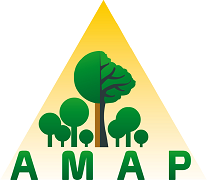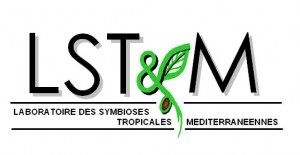Cultivar
A coordinated higher education programme in the field of plant breeding with an international scope, with operational options for partners in the Mediterranean and tropical countries
CultiVar trains students in plant breeding by introducing them to cutting-edge scientific research.
Goals
CultiVar is an international multi-partner initiative, aiming to promote the exchange of information and skills between researchers and students within existing Master and PhD level training courses oriented towards plant improvement.
Actions
- Training modules "anchored on research". Leading researchers transform their research results into educational material.
- Interdisciplinary bridges. Interdisciplinary interfaces, action research experiences and multidimensional issues are addressed through lectures, roundtables and symposia to raise awareness of the complexity of research for development.
- Follow-up with students. Two cohorts of students starting their Master’s degree in 2016 and 2017 are accompanied and financially supported.
Results
• Support for researchers from the Agro community (from research units in the field of plants and plant improvement in the broad sense) so that they become more involved in master’s and doctoral courses in local training programmes (UM, Montpellier SupAgro, ED Gaia), in collaboration with the teacher-researchers: more than 100 scientists trained in teaching methods ;
- More than 130 scientists involved in the project.
• Production of educational materials:
- Thirteen new teaching modules have been integrated into Montpellier’s training courses, covering cutting-edge scientific fields ranging from phenotype and genotype analysis to integrated approaches to plant breeding;
- Creation of innovative educational products including games and 13 video capsules.
• Support for students and young scientists:
- Eleven scholarships to study for a master’s degree in Montpellier (seven Senegalese and four Vietnamese);
- Ten French students for their M1 internships abroad (travel, gratification, lab hosting);
- Twenty-six invitations to young researchers from southern countries to participate in teaching modules in Montpellier.
• International component: with the objective of transposing certain teaching components into the local curricula of partner institutions in Senegal (Ucad Dakar and Ensa Thiès) and Vietnam (USTH Hanoi).
- Two introductory courses on pedagogy organised on site;
- Five international coordination missions abroad ;
- Ten invitations from partner teachers to Montpellier.
• Signing of a consortium agreement concerning, among other things, the intellectual property of the educational products created in the framework of CultiVar.
• Communication: the website cultivar-flagship.net/en gives access to a large part of the project’s output (teaching bricks programme, catalogue of educational products, newsletters, educational videos).
• Putting the CultiVar experience (CultiV-ART) into perspective via an artistic medium.
Prospects
The testimonies gathered during the workshops organised during the project and on the closing day of 21 November shed important light on the possible drivers of a sustainable dynamic. The researchers involved in CultiVar state that this project has enabled them to gain in coherence and conviction, and to participate in the rapprochement of cultures, but also to attract talented students to their fields.
The Montpellier educational institutions highlight the benefits of the project as including the enrolment of additional foreign students, selected by the partners, the mobilisation of new researchers to give lectures on plant improvement, and the diversification of internship offers thanks to the financial support of the project. Among the main difficulties encountered, they note the sometimes insufficient level of students in the language of instruction, different learning cultures depending on the country of origin and the cumbersome administrative procedures with the partners.
The educational institutions of the southern partners, while recognising the interest of the project, raise some weak points, such as the flight of their best students to Montpellier, the limited benefit for the teaching teams on site, and the difficulty of transposing the teaching bricks created for Montpellier.
Plant improvement is a field of innovation that is undergoing a process of renewal. It is at a crossroads between doubts and opportunities: with its strong biotechnical levers and affirmed societal goals, it must also be anchored in effective interdisciplinarity within the framework of an agroecology in action. Its teaching justifies a major mobilisation. The achievements of CultiVar deserve to be enhanced by a new initiative, the support of which remains to be built.
- Project Number1504-007
- Call for project
- Start date :1 September 2015
- Closing date :31 August 2019
- Flagship project :yes












